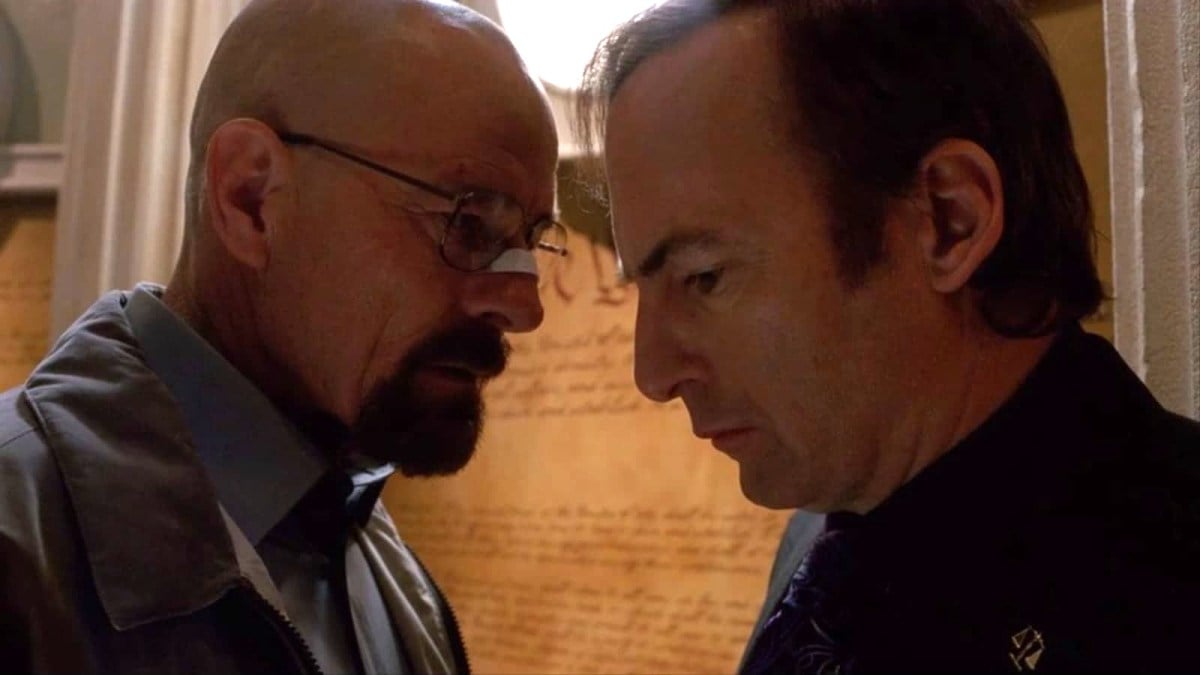The following article contains spoilers for the final episode of Better Call Saul.
There are only so many television series that could be considered in the discussion of the greatest series of all time. Then narrow that down to see how remarkable it is that both Breaking Bad and its prequel series Better Call Saul can be considered in that conversation.
The AMC series Better Call Saul was not the first spin-off ever made – Frasier, Law & Order: SVU, Laverne & Shirley, Mork & Mindy, and NCIS all come to mind – and it definitely will not be the last. But Better Call Saul does something most other spin-offs do not. Better Call Saul is no mere companion piece to Breaking Bad, it serves as an answer to a question that we never asked while giving us closure on Breaking Bad.
This leads to one of the greatest questions to ever be asked with regards to television and popular culture as a whole; is Breaking Bad better than Better Call Saul? Let’s take a look at both shows and what makes them special, from the characters, writing, and story, to the cinematography and tension, and try and figure out which show is better.
The characters
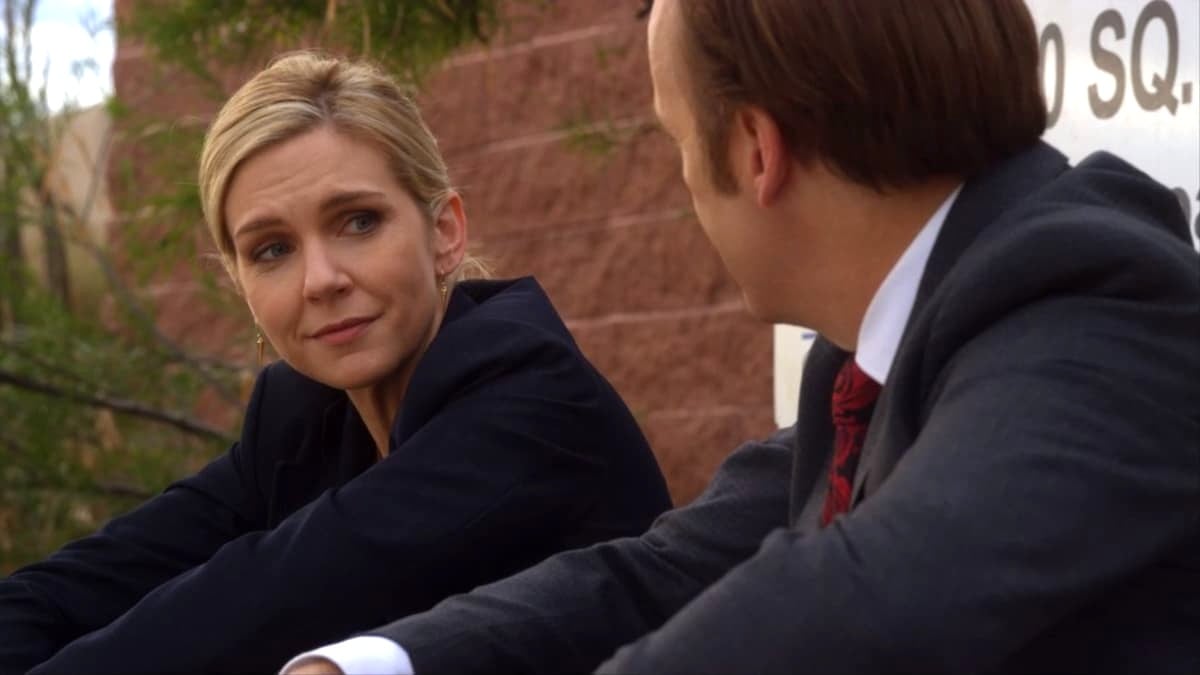
Of course one of the best areas to draw comparisons from are how good the characters in the series are. The trouble is that some of the greatest characters in Better Call Saul are also in Breaking Bad. Saul Goodman aka Jimmy McGill (Bob Odenkirk), Mike Ehrmantrout (Jonathan Banks), and Gustavo Fring (Giancarlo Esposito) all feature prominently in both, and their performances in both series are comparable yet different. In addition to those characters, Walter White (Bryan Cranston), Jesse Pinkman (Aaron Paul), Hank Schrader (Dean Norris), and Marie Schrader (Betsy Brandt) all return in different stages of the show, along with a few others, and they deliver performances equal to their Breaking Bad performances.
Even though many of these characters return, we get more insight into the more prominent ones than we ever did in Breaking Bad. Saul Goodman was not just the sleazy TV lawyer, Mike had a deep and heartbreaking backstory with a son who had been murdered by his fellow cops, and Gus was not always as fearless as he made it out to be. It makes the series more of a character study than Breaking Bad, or at least a character study of a different caliber. Breaking Bad felt like the characters’ choices were more reactive than planned, whereas in Better Call Saul they felt a little more thought-out.
The new characters are welcome additions to the universe, with each prominent new character having their own intricate storyline which manages to come to a satisfying conclusion. Kim Wexler is at the top of the list, played by Rhea Seahorn. Kim was one of the best parts of Better Call Saul, the audience really didn’t care if Jimmy survived the events of the series, but we did care about Kim. Her arc was brilliant as well, working her way into the law from nothing, getting promotion after promotion, and finally acting as Jimmy’s moral compass as she fell apart herself.
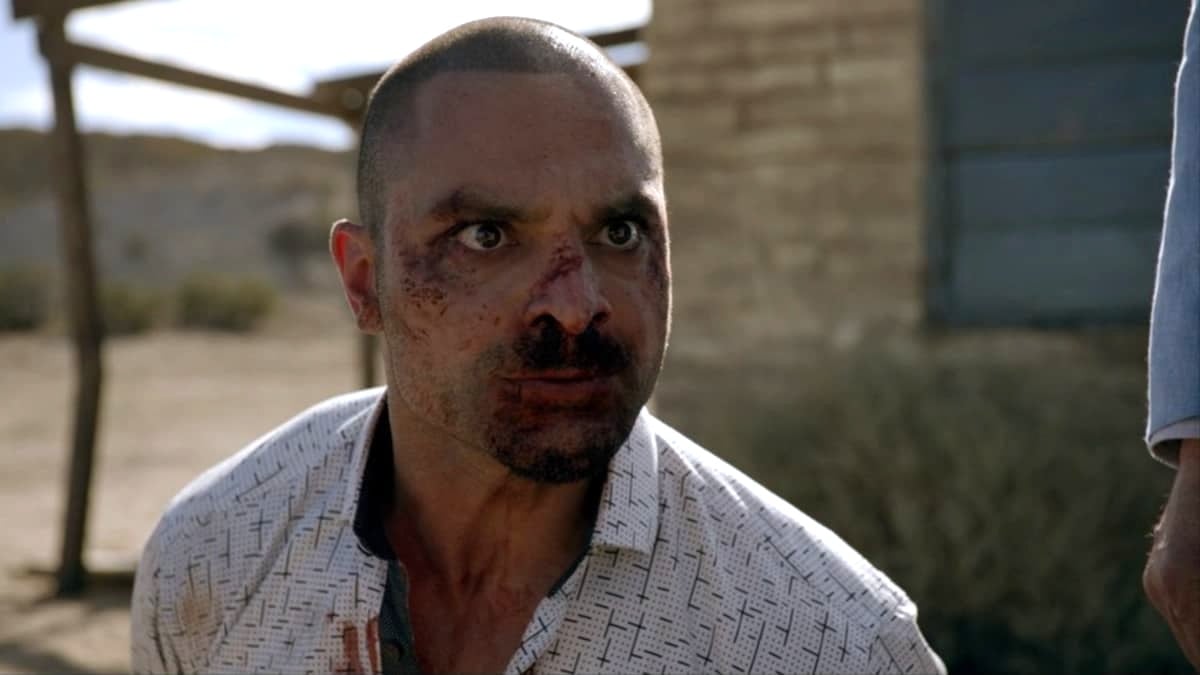
On the cartel side, we had the tragic Nacho Varga played by Michael Mando. He was Saul’s entry point into the world of drugs and the murder associated with it. Every scene shared between him and Mike or with his father showed how he wanted out of the life he had, but fell deeper into the cartel rabbit hole, threatened by Gus, ultimately leading to his death. Nacho’s relationship with Mike ultimately informs his relationship with Jesse in Breaking Bad, which was more impactful than the relationship in Better Call Saul. But Nacho’s death was still one of the best scenes in either show.
Then we have the Salamanca family. We saw Tuco and Hector Salamanca in Breaking Bad and they were every bit as ruthless in Better Call Saul. But Better Call Saul managed to one-up both of those characters with one of the suavest and most menacing villains in television history – Lalo Salamanca – played by Tony Dalton. Every moment his character was on screen proved to be some of the most interesting bits of the show, from his entry cooking for Nacho, to somehow climbing into the vents at the Travel Wire, to wiping out a hit squad at his villa, and needlessly killing Howard. They introduced many cartel members throughout both shows, and somehow Lalo proved to be the best.
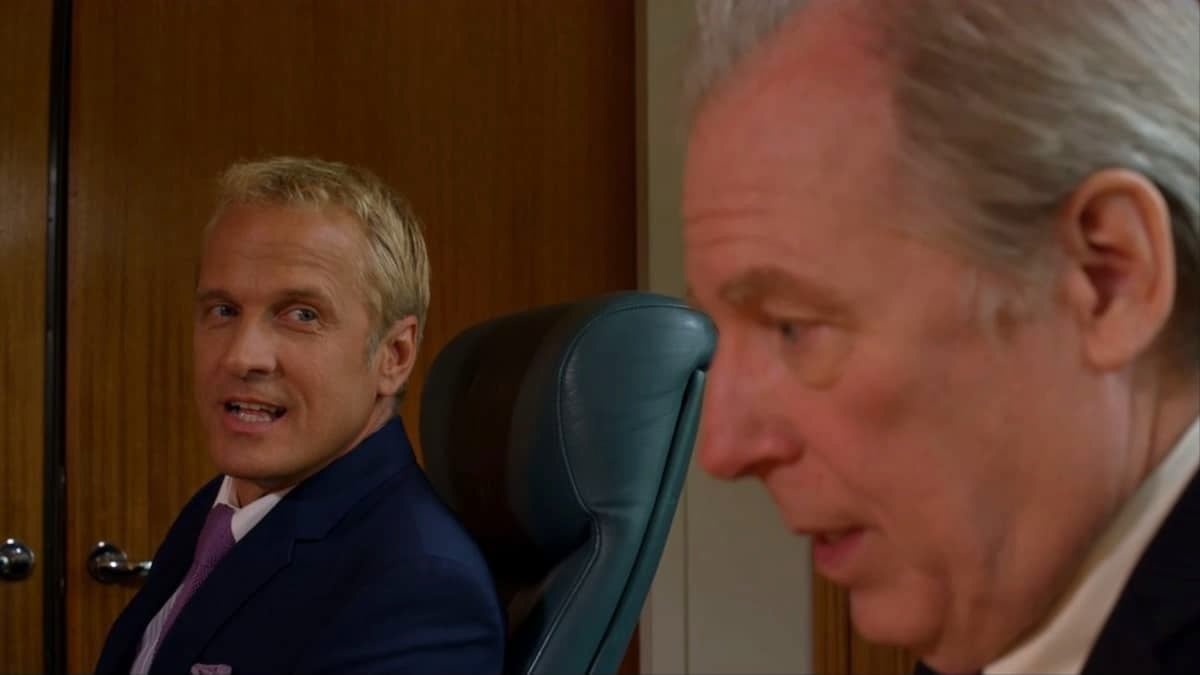
It wouldn’t be a law show without some great lawyers, and Better Call Saul was full of them. There were many side characters that made up the law side of the show, and they were all excellent. But two undoubtedly stand out, Howard Hamlin (Patrick Fabian) and Charles McGill (Michael McKean) were the team that made up HHM. Howard could have been a nothing character, the foil to Jimmy’s hero. But instead, Howard was supportive of Jimmy and for the most part Kim. Aside from Nacho, his story might be the most tragic, appearing in Jimmy and Kim’s crosshairs which ruined his reputation, and finally appearing in Lalo’s, ending his life.
Charles was Jimmy’s older brother, perhaps the most important person introduced in Better Call Saul, the man who informed every one of Jimmy’s choices. Charles and Jimmy’s relationship is explored throughout the series, even after Charles commits suicide in season three. Their relationship might be the most tragic relationship in the Breaking Bad universe, with Jimmy constantly trying to win his brother’s respect, and Charles never giving him the chance, even as Jimmy cared for him during his illness.
The story
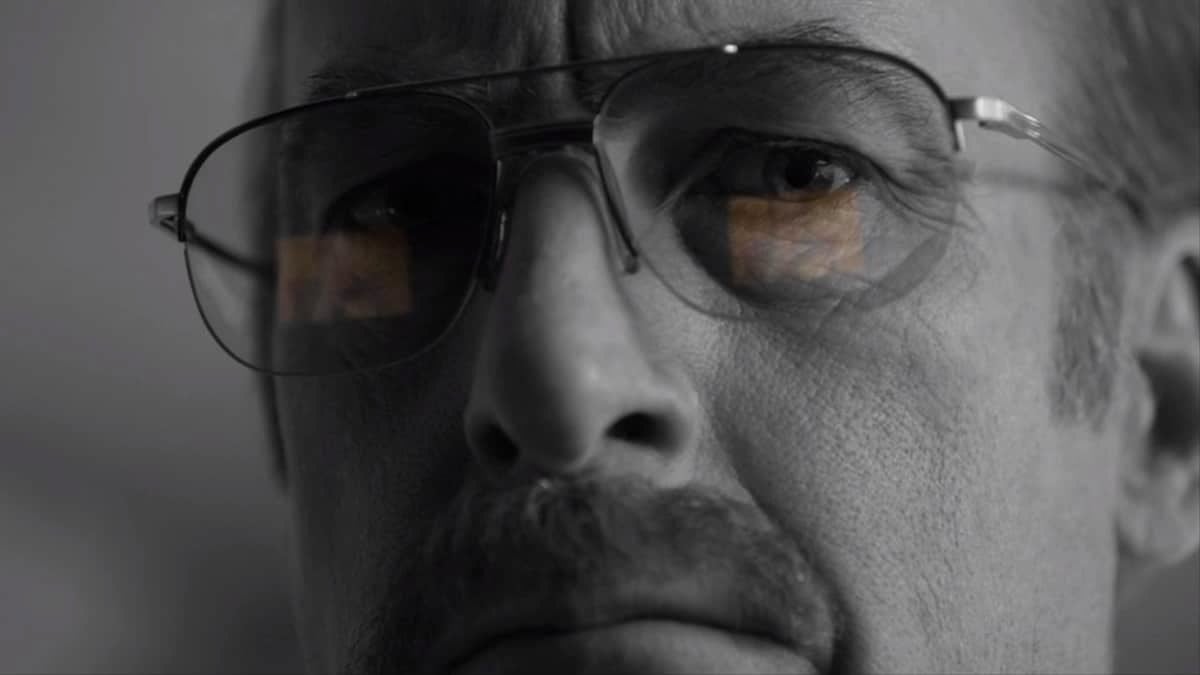
One of the most difficult things a true fan of the world that Vince Gilligan and later Peter Gould created can do is give you a definitive answer on which show is better, Breaking Bad or Better Call Saul. It is not a cop-out to say that both shows are fantastic and of extremely high quality because they are. The shows are connected more than your average spin-off. Watching Breaking Bad informs the events of Better Call Saul but the opposite is also true as they are two sides of the same coin.
The events of Better Call Saul take place both before and after the events of Breaking Bad. Before, as we see Jimmy’s adventures as a lawyer in Albuquerque, on his way to becoming Saul Goodman, then after as we follow Gene Takovic – Saul’s new identity – deal with the fallout of the events of both shows, in black and white.
Even though Breaking Bad and Better Call Saul are in the same universe and share the same circle of characters, the show has different themes and is about fundamentally different things, although the execution of the two is remarkably similar. Better Call Saul takes the best scenes of Breaking Bad and decides to make nearly the entirety of the show that. Both shows continue to build up a sense of tension throughout their runs, but it is perhaps more impressive for Better Call Saul considering we already know how most of the characters meet their end.
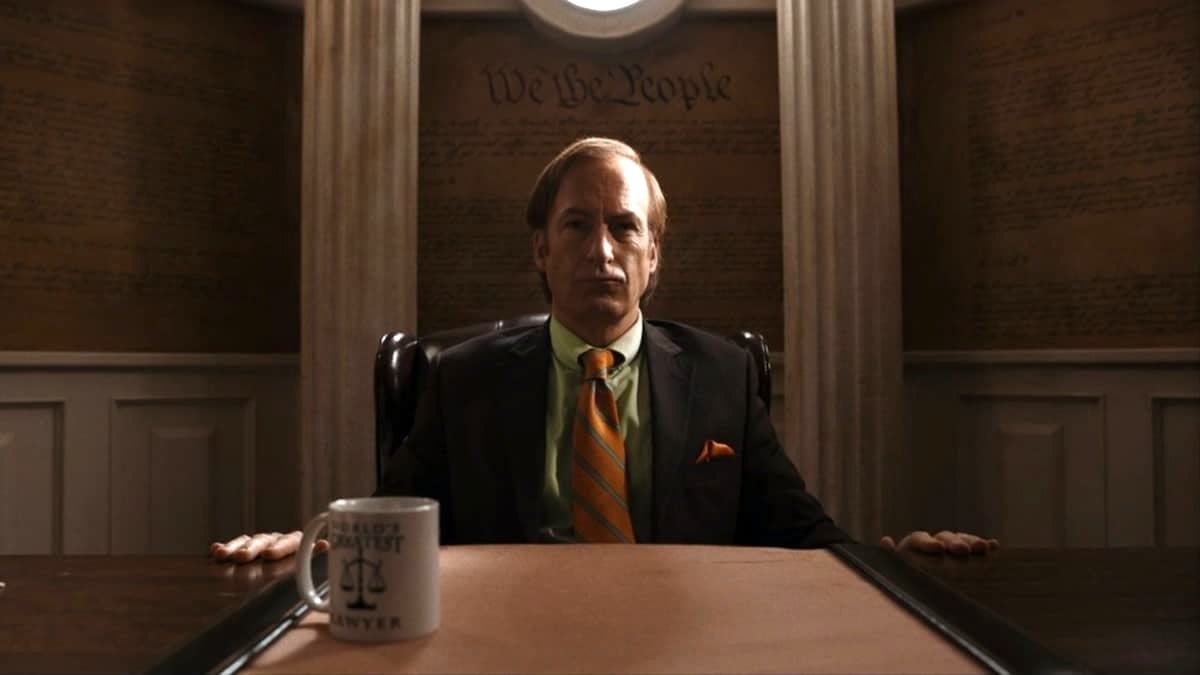
Some of the best scenes in Breaking Bad are when Walt and Jesse are in a bind, and need to work out some way to get out of their situation, like with the train robbery in season five, the continued threats and use of ricin, and the murder of Gustavo Fring. Because Jimmy’s entire arc in Better Call Saul consists of him becoming the shifty lawyer we meet in Breaking Bad, he constantly engages in cons and uses clever means to either get his clients out of a bind or serve his own self-interests.
The best scenes in Better Call Saul are when Jimmy, Kim, or Mike have to weasel their way out of situations, like when they defended Huell and when they tore down Howard, Mike with Werner Ziegler, or when Lalo was hunting Gus. Better Call Saul is masterful at building tension, to the point that we forget that the bigger story is what happens to Saul after the events of Breaking Bad. The tension builds so high that the audience is on the edge of their seats for the characters introduced in the show, especially Kim, leading to the climax of her story in the Gene timeline. Ultimately, Better Call Saul is a love story, and one of the most touching to come to television.
The cinematography
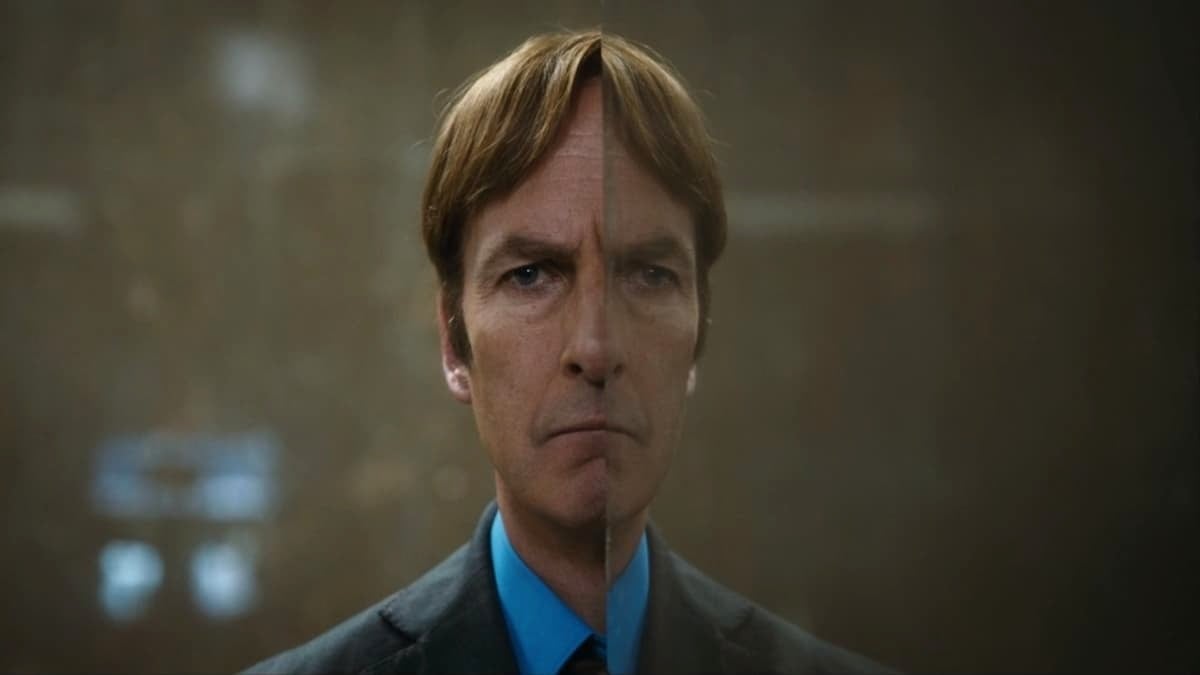
Again, Better Call Saul and Breaking Bad look incredibly similar, with each show shooting Albequerque masterfully, and they showcased some of the best cinematography that television has to offer. Better Call Saul paid homage to its predecessor on more than one occasion, but recently it replicated a technique from Breaking Bad where the camera moved to reveal that Walt was behind a pillar. The Better Call Saul scene revealed Jesse outside of Saul’s office which you can watch below.
There are many different excellent shots in both shows, in Breaking Bad, the shot where Jesse floats after taking heroin comes to mind, as well as Mike and Walt looking over the riverbed as Mike dies. In Better Call Saul there is the shot you can see below Jimmy’s reflection on the wall of the courthouse, or the shot of the Saul Goodman commercial in color reflecting in Gene’s black and white glasses. Both series contain some excellent cinematography, but you might have to inch it over to Better Call Saul when it comes to quality, only because it was the series that came after, and they show more of beautiful Albequerque.
It feels weird to write that watching Better Call Saul has worsened viewings of Breaking Bad but in a way it has. Not because of the story of Breaking Bad, as it is still akin to watching a very slow and agonizing train wreck in action, but because Better Call Saul feels like a masterpiece in every way. Every minute of the show feels like it was painstakingly crafted to fold in on itself whether it brings back a throwaway line in Breaking Bad or refers to something in its own show.
So after it’s all over, no, Breaking Bad is not better than Better Call Saul. Better Call Saul is better than Breaking Bad, but perhaps the best thing about that fact is how unexpected that is. You wouldn’t think that a show about the unlikeable lawyer from Breaking Bad would run for six tremendous seasons and outdo its predecessor, but here we are, after watching one of the greatest television series of all time, Better Call Saul.

